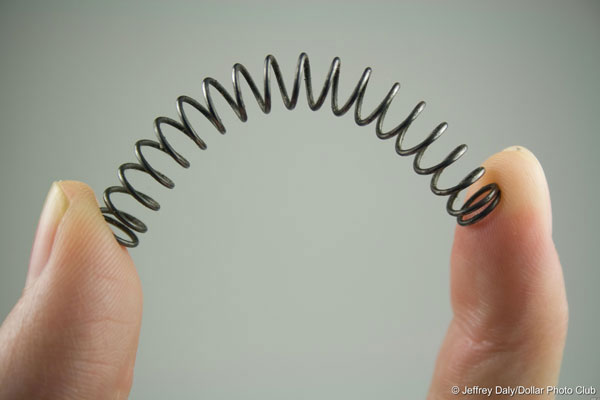5 Myths About Being A Good Mom
Meryl Beck of Ashburn, Virginia, is having one of those days every mom can relate to. "Put your toys away!" "Brush your teeth right now!" "Stop fighting!" She's done nothing but bark orders at her two sons from the moment they woke up, and she's had it. Finally, she snaps at them, "I don't like you very much right now!" The minute the words escape her lips, Meryl is consumed with guilt, calling herself a "bad mom." But is she?
The idea that a "good mom" always feels positively toward her children, no matter how much they test her patience, is just one of the many myths of motherhood, says psychologist Diane Sanford, PhD, health expert for the American Psychological Association. "Women tend to compare and measure themselves against unrealistic images and then feel they fall short." From ads that feature picture-perfect mothers, to bestselling books that promise a foolproof formula for raising exceptional kids, to celebrity moms who seem to do it all with ease, experts and mothers alike agree that "mythic" images are all around us.
Even the next-door neighbor, who may be just as harried as we are, seems to have it all together—at least that's what many of us think. The truth is, our neighbor probably has the same skewed view of us. "The whole Superwoman idea has gotten stronger and is more oppressive than it has ever been," says Dr. Sanford. Mothers, much more than fathers, are supposed to know the "right" stroller, or "best" school, or "most enriching" activities. And if we don't, we worry that we're going to mess up our kids.
Whether this pressure to get it right comes from media messages or our own inner expectations, it's there, nagging us to be the best. The result? "You end up feeling exhausted and anxious, much more than is necessary," says Paula J. Caplan, PhD, a clinical psychologist at Harvard and author of Don't Blame Mother.
Give yourself a break, Mom! Once you take a close look at some common motherhood myths, you'll discover that they're really more fiction than fact.
MYTH 1: A GOOD MOM LIKES HER CHILDREN ALL THE TIME
Christine Nicholson, PhD, a clinical psychologist in Sequim, Washington, thinks it's perfectly OK that Meryl Beck lets her sons know when they are not her favorite people. It's when you suppress those less-than-motherly feelings that you're more likely to lose control and act in ways that you'll regret, she points out.
Given the challenges of raising kids, it would be impossible for you to be happy with your brood, and they with you, every day. "Some days you just want to pack their bags, drop them off at the train station and drive away," says Dr. Nicholson. "That's normal. If you can find the caring, kind parts of you 75 percent of the time, you're doing really well!"
MYTH 2: A GOOD MOM BONDS WITH HER CHILDREN IMMEDIATELY
Rachel Brown of Clifton, New Jersey, had fallen in love instantly with her first two children. So she was distraught when she didn't experience that automatic attachment the third time around with son Jared. "It wasn't until he was almost a year old that I began to feel that same bond," says Rachel, who still harbors guilt about it today, almost four years later.
For the most part, women do have strong instincts to protect, nurture and love their kids. Sometimes, however, your newborn may seem like a stranger at first. Bonding isn't always instantaneous, Dr. Sanford reassures. "Like any relationship, your connection to your children develops over time," she explains. "You learn to become a mom by getting to know them and by them getting to know you." Instead of feeling inadequate or blaming yourself, focus on the many successes you help your child achieve as he grows.
Everyone knows at least one "perfect" mom—the one with the always-sparkling kitchen, the well-behaved children and the exciting career. How does she do it? She doesn't, says Dr. Sanford—at least, not without help. "We don't see her behind the scenes when her children are screaming, she's arguing with her husband and she's falling apart. We're so sure thateveryone else but us is doing a great job of balancing their lives."
There's no virtue in pretending you can do it all—or breaking your neck trying to. All that does is up your stress levels. In other cultures, women flock around a new mother to help ease the child-care burden. So create your own "village" of friends and relatives, along with your spouse, and take turns supporting each other to get chores done, tend to responsibilities and take a bit of downtime.
You also need to recognize your limitations and be willing to make some compromises, advises Dr. Nicholson. You may not be able to do everything on your list, and that's the trade-off in order to squeeze in some relaxation. "If you can get a little balance into your life even once or twice a week—say, taking a half-hour walk, or putting your feet up and reading a magazine for 20 minutes, as well as caring for your family—that's great!" It may not seem like a lot, but when you have your hands full juggling the demands of life, those 20 minutes will feel like a godsend.
MYTH 4: A GOOD MOM SPENDS A LOT OF TIME WITH HER KIDS—AND THEY LIKE HER BECAUSE OF IT
You volunteer in the classroom, chaperone the field trips, coach your daughter's soccer team—all in an effort to get closer to your kids. But is it too much of a good thing? "Sometimes familiarity breeds contempt," muses Kelley Cunningham of Honesdale, Pennsylvania, author of What's the Matter with Mommy? Cunningham had been a stay-at-home mom for eight years. Worried that her three sons would feel abandoned after she returned to work full time, she wanted to be sure to give them extra attention at night, talking and laughing with them as she tucked them into bed. But whenever her evening routine went on too long, she'd hear, "OK, that's enough. Can I go to sleep now?"
There are no studies that show punching a time clock with your children will guarantee their adoration. It's the nature of the interaction that counts, according to Dr. Caplan. "If you listen to your children, laugh and relax with them, make them feel loved, it teaches them that relationships are a source of joy," she says. They'll like you because of that—not because you helped man the punch bowl at the school dance.
Also, take a lesson from Cunningham's experience and put on the brakes a bit when your kids have had enough. "It's important to read the signs that your child is ready for more independence," says Dr. Caplan. That doesn't mean you have to stop spending time with your kids; however, a little less might go a long way.
MYTH 5: A GOOD MOM BELONGS TO ONE BIG, SUPPORTIVE MOMS CLUB
That's a surprise to Jane Goodow of Honolulu, who often felt she had to defend her childrearing choices to other mothers in her old neighborhood. When she signed up her son for the swim team but not other scheduled activities, she got an unexpected visit from the "head mom" of the basketball team. "I explained that one activity was enough for a fourth-grader," she recalls. "She told me, 'Well, if he doesn't join the basketball team he'll be a nobody.' I was flabbergasted."
Goodow is not alone in feeling undermined by other parents—it's a common complaint, says Dr. Nicholson. Those who cling to the mom myths are less likely to be understanding of other moms. "They are too frightened of the feeling that they may have made a wrong choice and so they can't support yours," she says.
Of course, not all mothers are critical or feel criticized. "Within my mothers' group, there is no judging, outright or whispered, about other people's choices," says Lynn Harris of Brooklyn, New York, who has a 2-year-old daughter.
The upshot? Some moms will be supportive and others won't. The key to dealing with those who aren't is to understand where they're coming from. Dr. Caplan suggests talking to your "critics." You may find that they are just trying to validate their own choices out of insecurity, or haven't shared their true feelings out of fear that you might judge them.
When it comes to mom myths of any kind, the bottom line, our experts say, is to trust your own mothering instincts. And if one of those bad mom moments sneaks up on you anyway, just check in with Kelley Cunningham and odds are you'll feel better. When she caught her son Noah in a fib, she gave him a lecture on trust and responsibility, repeating several times, "Now that you're 10 years old, you should know better." Noah listened respectfully, then said, "Mom, I'm 11."
Written by: Cheryl Solimini
Written by: Cheryl Solimini




Comments
Post a Comment